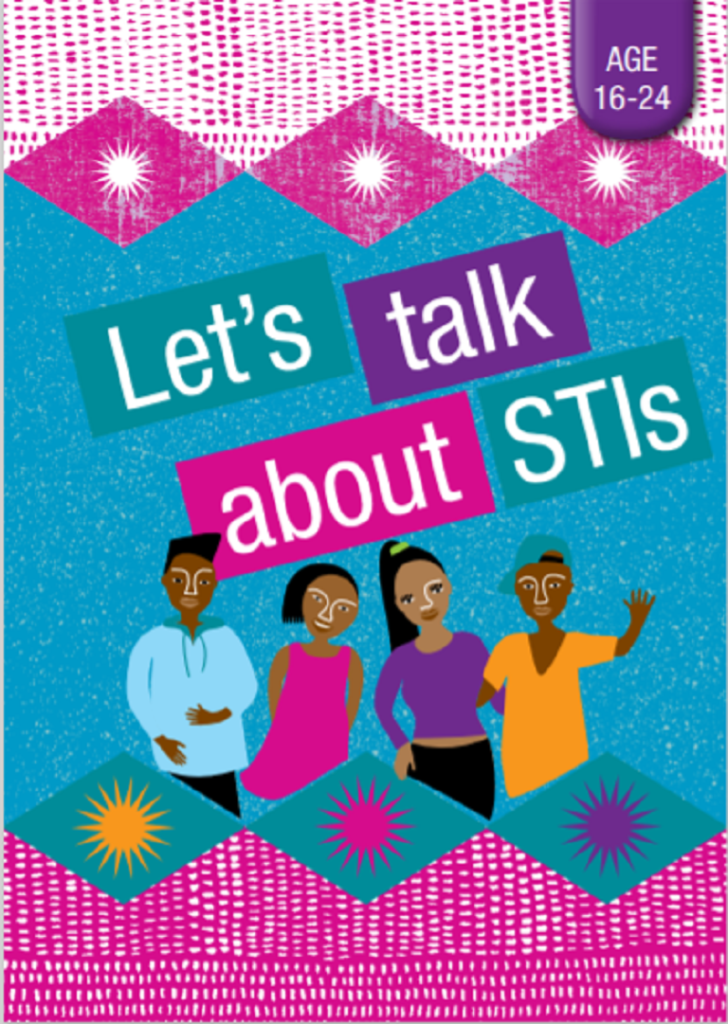Lets' Talk About STIs
What is an STI?
An STI – or sexually transmitted infection – is an infection that’s spread through unprotected sexual contact. If you have unprotected vaginal, anal or oral sex (without a condom) you could get or pass on an STI. Common STIs include HIV, chlamydia, herpes, syphilis, gonorrhoea and genital warts. Anyone can get an STI, even if you’ve only had sex once. You don’t need to have had lots of partners to get an STI.
How do I know if I have an STI?
It’s important to know the signs of the most common STIs. If you notice any of these symptoms, go to a health facility as soon as possible, get tested and get treated:
- Unusual discharge (which could be smelly, itchy, yellow or green) from the vagina or penis
- Pain or burning when you pass urine
- Needing to pass urine often
- Pain in your lower belly
- Sores, blisters, warts, lumps or a rash around the penis, vagina or anus itching, burning or pain in the genitals
- Painful swelling of the vagina, testicles or penis
- Pain during sex
- Bleeding during or after sex
- Bleeding between periods in women, fever, with any of these symptoms, especially pain in the lower belly, is extremely serious.
You can’t tell just from looking at somebody that they have an STI because some STIs, such as chlamydia, don’t have any symptoms. So you – or your partner – could have an STI without knowing it. That’s why you should get tested regularly if you have sex without a condom.
How can I prevent STIs?
- Use a condom correctly every time you have sex. This lowers your risk of catching or passing on an STI. But if our partner has sores, a rash or listers on their genitals that aren’t totally covered by a condom, you won’t be protected.
- Go for regular check-ups. Even if you’ve been going out with your boyfriend or girlfriend for a long time, you should still get tested, just to be safe.
- Don’t rely on herbs or traditional medicine. They won’t cure STIs. And if you are living with HIV, they could stop your antiretroviral treatment from working.
Why should I get tested?
If you don’t get tested, and you don’t get treatment as soon as possible, STIs can be very painful and can seriously damage your health. Some untreated STIs could affect your fertility: this means that you might not be able to have children. And if you have an STI, your risk of getting HIV increases.
The good news is that most STIs are easily treated. Some STIs, such as herpes, HIV or genital warts, can’t be cured but the symptoms can be reduced. If you test positive for HIV, using HIV treatment correctly means you can still lead a long, healthy life.
Where should I go for treatment?
It’s natural that you might feel nervous about getting tested. But there’s no need to be embarrassed. You can go to the nearest health facility for testing, where you have the right to respectful and confidential treatment. You also have the right not to be judged. If you have a regular sexual partner, you can also bring them along to the clinic, as both of you may need treatment. If you’re the only one who gets treated, and you and your partner then have unprotected sex, you might get infected again. If you don’t have a regular partner, it’s a good idea to tell your recent sexual partners that they need to go to a health clinic for a check-up. You are doing the right thing: taking responsibility for your health and other people’s.

